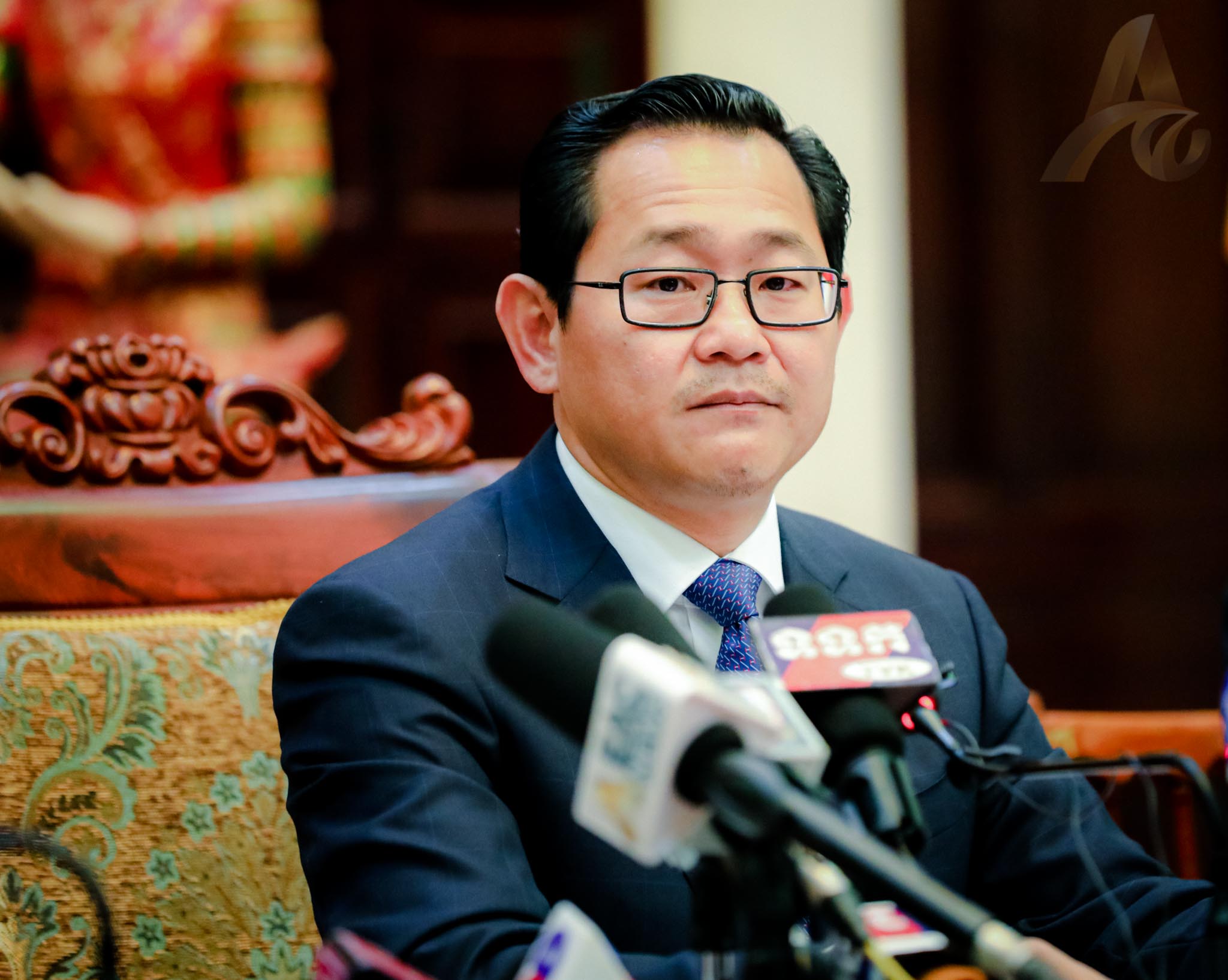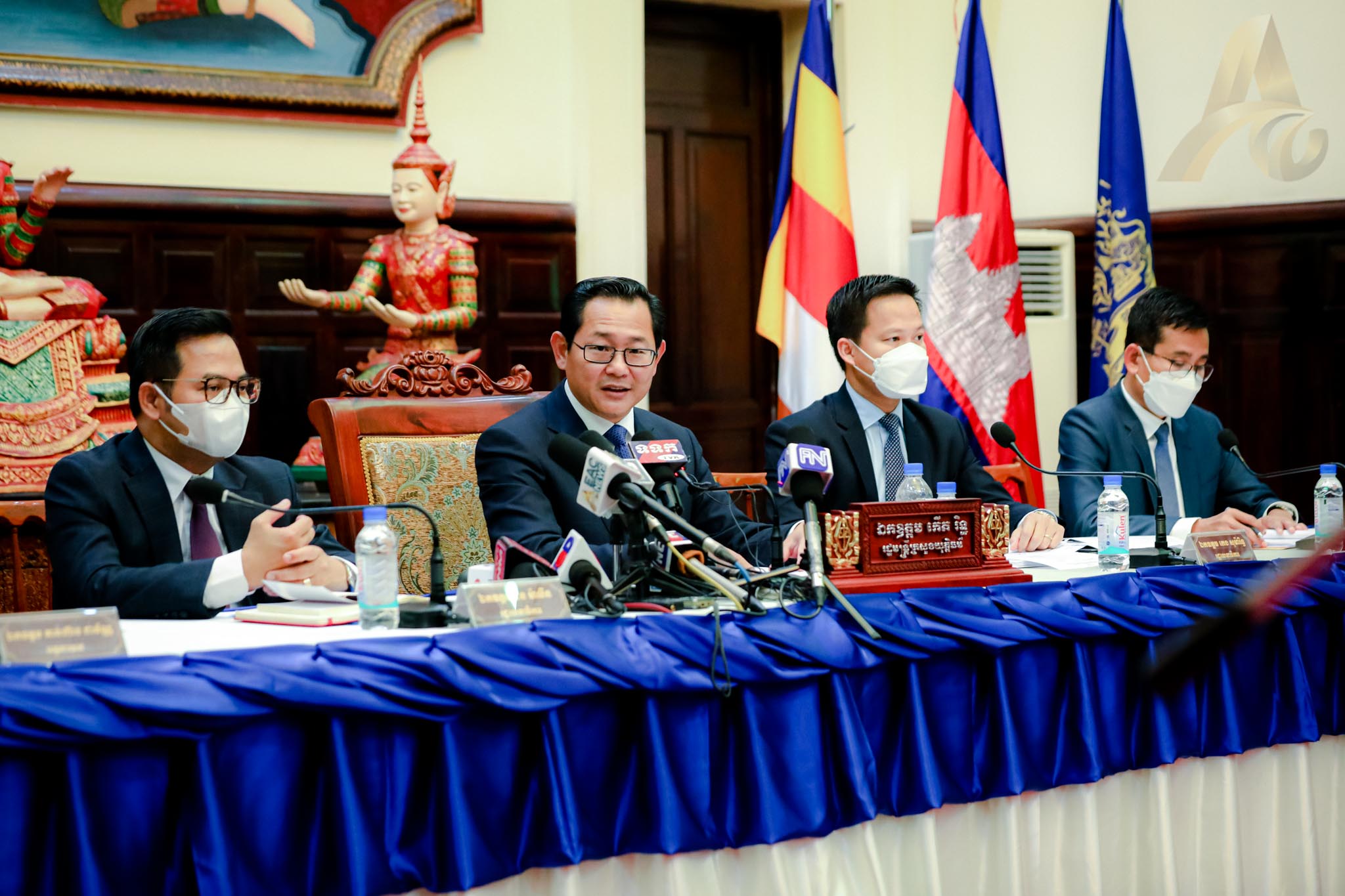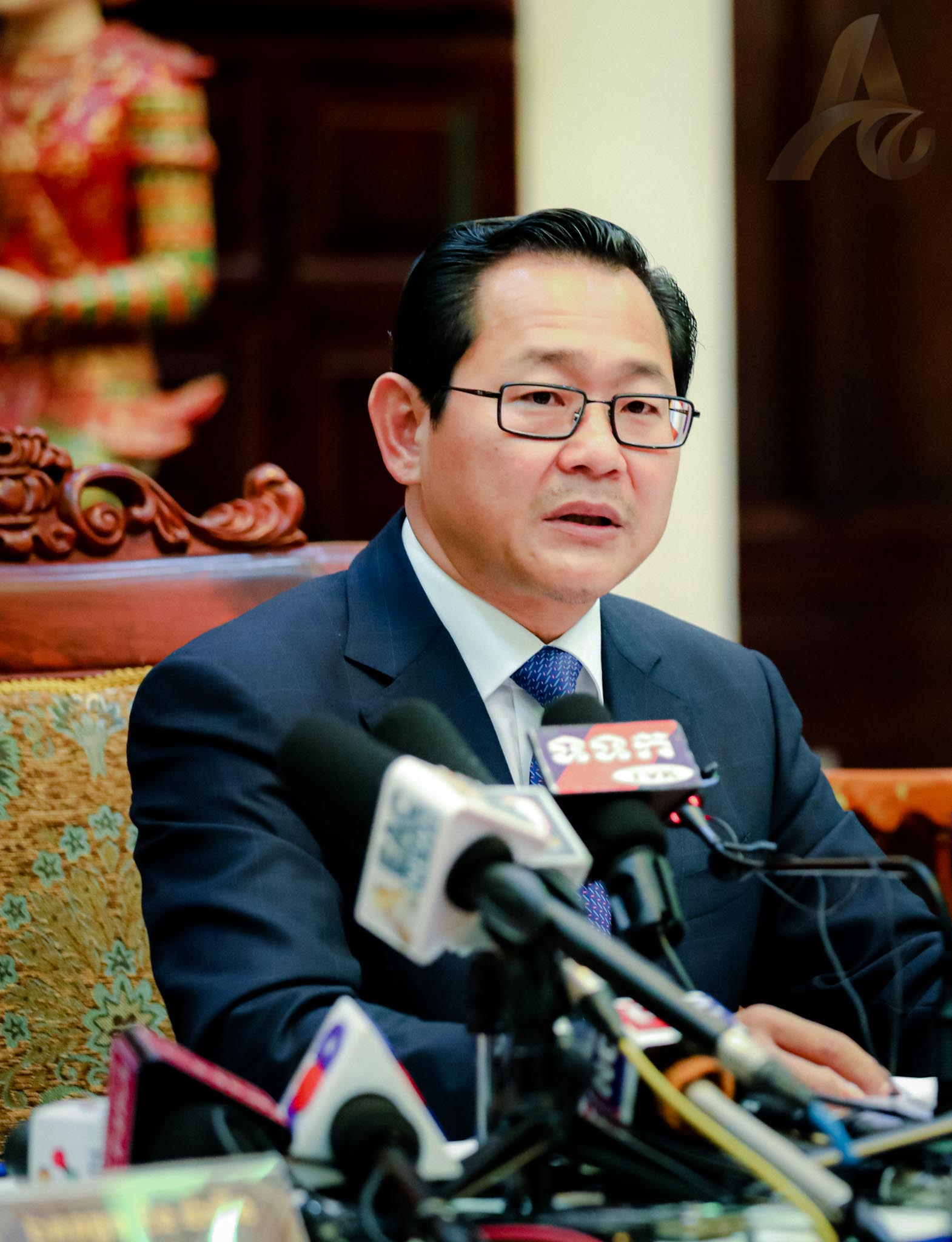Justice Minister: Election of Prime Minister is the Exclusive Right of Party with Majority of Seats
PHNOM PENH: The Minister of Justice, Koeut Rith, has explained that in the principle of democracy, the party that wins the most seats in the National Assembly is directly elected by the people in power, so the appointment of someone as Prime Minister to form a government is the exclusive right of the party that wins the most seats in the National Assembly, even if that party does not get more than 50% plus one in votes.
Minister Koeut Rith made this statement at a press conference highlighting the purpose and content of the amendment of eight articles in the Cambodian Constitution.
Article 119 (two) of the updated Constitution states, "At the request of the party with the largest number of seats in the National Assembly, the King appoints an elite as Prime Minister to form the Royal Government. The proposal from the party with the most seats in the National Assembly must be copied to the President of the National Assembly.”
The wording of the new draft constitution differs from the old one, which stated, "With the consensus of the two vice-presidents of the National Assembly, the King nominates one of the elites of the winning party to form the Royal Government.”
The Justice Minister underlined that the amendment was made to respect the will of the people who are the voters that elect a party into power, so the political party with the most seats in the National Assembly must be the leader of the government.
He said, "What is wrong with the parliamentary regime? If the National Assembly still has the full power to vote in forming a government, as well as to pass a motion of impeachment to remove confidence in the Royal Government or to remove the Council of Ministers, there is no place to reduce the power of the National Assembly."
He further added, "An elite is appointed as the Prime Minister, and this elite chooses the various components to form the Royal Government. But this is just making a list! The Council of Ministers will not be formed until it is passed by the National Assembly, and the National Assembly votes in favor by an absolute majority, and then the Council of Ministers will be appointed by the King through Royal Decree. . . . So where is the power of Parliament? The power of the National Assembly is at the Parliament, giving 50% plus one trust is the power of the National Assembly. In a parliamentary regime, power is in place.”
On Friday, 8 July, the Council of Ministers fully approved the new draft constitution and submitted it to the National Assembly.
According to Minister Koeut Rith, the current amendment to the Constitution was necessary to ensure the functioning of state institutions, to maintain stability and peace, fill the gaps of the Constitution, and to uphold the fundamental principles of liberal multi-party democracy, the principles of the constitutional monarchy and the ruling regime of Cambodia.
























